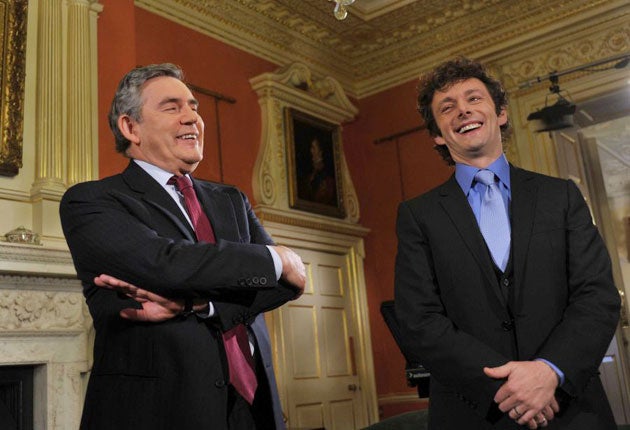PM admits recession could last until 2011
But Brown says his plans have not failed and pledges 100,000 new jobs

The recession could last as long as two years without urgent action to boost the world economy, Gordon Brown acknowledged yesterday as Britain braced itself for a surge of new year redundancies.
The Prime Minister announced plans to create 100,000 jobs in the public sector and promised fresh moves to force banks to resume lending to businesses. He also in effect ruled out an early general election, saying all his efforts were focused on dealing with the "very difficult economic situation".
He will tour potential unemployment black spots this week before staging a Whitehall "jobs summit" next Monday, setting out moves to boost employment in "green" and hi-tech jobs as well as repairing schools and hospitals.
Plans are also being considered to give cash to struggling firms to switch staff to part-time working with the rest of their hours used for training. But with ministers privately admitting they expect a torrent of job losses in the next three months, Mr Brown conceded the downturn could last until 2011.
Asked on BBC1's Andrew Marr Show about forecasts that Britain faced a "two-year recession at best", Mr Brown said: "Well, I think that does depend on the level of international co-operation."
He appeared to strike a much more downbeat note than Chancellor Alistair Darling, who has forecast that the economy will begin to recover this summer. The UK is expected to officially head into recession later this month, when figures are anticipated to show a downturn for a second quarter.
Barry Potter, a director of the International Monetary Fund, also cast doubt on the Chancellor's forecasts. He said: "That would be towards the more optimistic end of the projections."
Mr Potter warned that the slowdown would be "a particularly sharp problem for the UK Government to handle in the next year or so".
The Prime Minister dismissed suggestions that the £37bn taxpayer-funded bailout of high street banks or efforts to breathe new life into the economy – including a VAT rate cut – had flopped. He said the banks had been saved by the massive cash injection, which had in turn restored their "ability to fund businesses and mortgages".
The Prime Minister argued that only £1bn of the £18bn earmarked for other measures for boosting the economy had been spent, with £17bn still to filter through. He predicted: "Over the next few months people will see the effect of that increasing activity within the economy. You can't judge a success or a failure by the first few weeks. You have got to judge it over the next few months."
The Prime Minister also suggested yesterday that the Government was drawing up plans in the Budget to help pensioners and the low-paid protect their savings. One idea being examined by the Treasury is enabling some interest on savings income to be tax-free.
In an interview with Radio 4, Mr Darling refused to rule out a second recapitalisation of the banks. He said: "In October ... I said it would be necessary to continue to take whatever measures were necessary to ensure we get lending in the system. Recapitalisation is not your first port of call but we will continue to discuss with banks what steps would help lending."
Vince Cable, the Liberal Democrat treasury spokesman, said: "Although sensible public investment is welcome, the jobs created will be overwhelmed by job losses." Chris Grayling, the shadow Work and Pensions Secretary, said: "This is a government that has got Britain into a major debt crisis and its solutions just aren't working."
Subscribe to Independent Premium to bookmark this article
Want to bookmark your favourite articles and stories to read or reference later? Start your Independent Premium subscription today.

Join our commenting forum
Join thought-provoking conversations, follow other Independent readers and see their replies